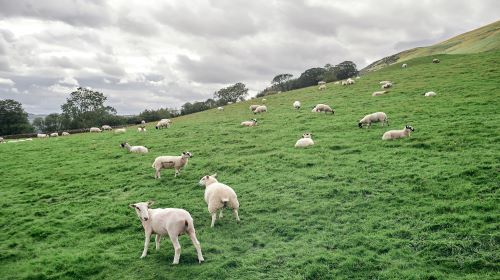
08 July 2022
Amidst a busy week in British politics, the Welsh government has outlined proposals for its post-Brexit agricultural subsidy scheme. The Sustainable Farming Scheme is expected to be rolled out in Wales in 2025 and will require farms to undertake basic nutrient accounting and soil testing to receive payments, alongside other actions such as planting trees on at least 10% of the land.
The Wildlife and Countryside have warned that the ban on peatland burnings is not working in England. Last year, burning deep peatland was made illegal by the government, but Freedom of Information requests show that several grouse moors were granted licences to burn large areas of peatland including in areas that had several conservation restrictions in place.
River Action campaigners urge Tesco suppliers to raise standards to protect the river Wye from pollution. Manure from chicken farms, which supply Tesco, has been causing major river pollution in the River Wye, resulting in the death of fish and damage to biodiversity in the river. Tesco responded, stating that it is supporting its farmers to improve standards including testing soils and improving on-farm practices.
Big Issue warns of a growing food crisis in Britain. James Withers, CEO of the Scottish Food and Drink Trade Association warns that the inflationary pressures on food are not short-term problems, and climate change will lead to further food price rises as productive land is reduced and food systems will break down.
The WWF has released a report arguing for a reduction in the amount of land used to grow crops to feed animals for meat and dairy. 40% of UK arable land is currently used to grow monoculture crops for livestock, which WWF believe is land that could be used to grow crops for humans. They also conclude that alternative food sources could be used for livestock such as grassland, helping improve soils with animals manuring on fields, and insect-based feed.
A recent study concludes that there is more to soil health than pH, phosphate, and potash. Over 40 test sites it was observed that irrelevant of the chemical profile of soil, good structure and limited compaction and increased biological life are key to soil health. This resulted in the finding that soil testing on a field level can be misleading, with livestock in fields leading to uneven distribution of chemicals across a field.
A study in Germany has found that soil pollution could raise the risk of heart disease in gardeners. Pesticides and heavy metals in soils affect the health of human hearts, with the research finding numerous previous studies connecting human health with soil health, and the potential for gardeners to be at greater risk due to close contact with polluted soils. It noted that at least 9 million people die a year in the world from air, water and soil pollution.
Boston researchers highlight that fungi are key for forest soils to absorb carbon. Tree roots connect with fungi and affect their storage of soil carbon. Fungi help store more carbon in soils absorbed by trees, allowing forests to play a greater role in tackling climate change.